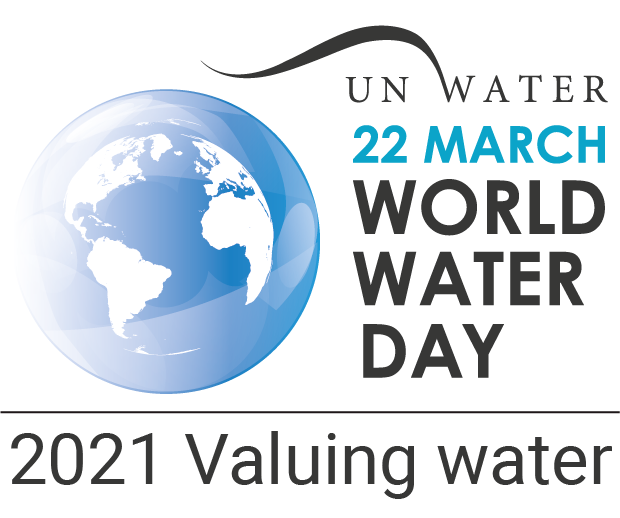New resources on aquatic health and water, sanitation, and hygiene preparedness now available!

Water is synonymous with life itself. For drinking, eating, bathing, playing, and more, access to water allows us to lead healthy lives. The theme for this year’s World Water Day – an annual United Nations Observance focusing on the importance of freshwater – is ‘Valuing Water’. To honor this observance, the National Association of County and City Health Officials (NACCHO) is taking a moment to value the work being done by local health departments to ensure access to clean water, promote aquatic health, and be prepared to respond to water-related emergencies across the United States. As the national association representing nearly 3,000 local health departments around the nation, NACCHO provides resources, tools, and technical assistance to support LHDs in accomplishing this mission.
Aquatic Health
Read our new Stories From the Field!

Promoting aquatic health at the local level includes maintaining safe and healthy conditions at public aquatic venues (i.e., swimming pools, waterparks, splashpads). Aquatic facilities are a valuable asset to communities: individuals can reap the health benefits of aquatic exercise, and water-related activities present a low risk of COVID-19 transmission if social distancing is practiced. Additionally, as temperatures continue to rise because of climate change, aquatic venues can prevent heat-related illnesses and provide individuals with relief from the heat. Aquatic health codes (also known as ‘pool codes’) are developed and enforced by state and/or local health agencies, and are critical to limiting risk of accidental drowning, waterborne illnesses associated with contaminated pool waters, and injuries related to pool chemicals.
A great resource for health departments who are developing or updating their pool codes is the Model Aquatic Health Code (MAHC), a set of voluntary guidelines published by the Centers for Disease Control and Prevention (CDC), and updated on a regular basis. NACCHO recently partnered with CDC to provide funding and technical assistance to two local health departments to improve their pool codes utilizing CDC’s MAHC as a resource. Learn more about these sites by reading our recently published Stories from the Field! NACCHO and CDC host regular webinars to deliver timely information on aquatic health tailored for local health departments. These webinars are free and accessible to anyone – visit NACCHO’s MAHC Webpage to view past webinars, and stay informed about upcoming webinars and other opportunities.
Additional resources for aquatic health:
Water, Sanitation, and Hygiene (WASH) Emergency Preparedness and Response
Clean water and improved sanitation are a few of the greatest public health achievements of the 20th century, as they have drastically reduced mortality and morbidity caused by infectious diseases. Despite this, diseases continue to spread through water in the United States causing 7.15 million illnesses and 6,630 deaths every year, per the CDC’s recent estimate of waterborne disease burden. Challenges pertaining to WASH emergencies are often related to our nation’s aging water infrastructure and global climate change, which causes more frequent and severe weather events.

NACCHO is dedicated to ensuring local health departments have the information and resources they need to prepare for and respond to WASH emergencies in their respective jurisdictions. This past year, NACCHO released a WASH Preparedness Resource Library complete with more than 150 free resources, including a Per- and Polyfluoroalkyl Substances factsheet developed by NACCHO staff*, and a ‘What Makes a Water-Prepared Local Health Department?’ checklist, developed by NACCHO’s WASH Emergency Preparedness and Response Workgroup. NACCHO and CDC currently provide technical assistance to local health departments to implement this checklist in their jurisdiction to improve their preparedness for WASH emergencies.
The WASH Emergency Preparedness and Response Workgroup, comprised of members from local health departments across the United States and subject matter experts from federal organizations, meet monthly to keep NACCHO informed on activities and updates at the local level, and to develop and provide feedback on resources and policies.
Additional resources from Partners
- CDC’s Waterborne Disease Outbreak Investigation Toolkit
- National Environmental Health Association’s Private Water Network Virtual Community
Looking Ahead
At NACCHO, we are dedicated to supporting the work of local health department officials and want to take this annual observance as an opportunity to thank them for their dedication to keeping water a safe and accessible resource for communities. For local health departments to continue improving water quality and access, they will need continued support (i.e., funding, collaboration, information sharing, advocacy) from partners at state and federal government, non-governmental associations, and private-sector organizations. Additionally, local health departments can utilize the resources shared in this blog to improve their processes, communications, and partnerships. If you would like to connect with the teams at NACCHO that focus on aquatic health and WASH, you can email [email protected] and [email protected], respectively.
*NACCHO’s WASH team would like to thank former intern Emma Carlson for help in developing this publication.





